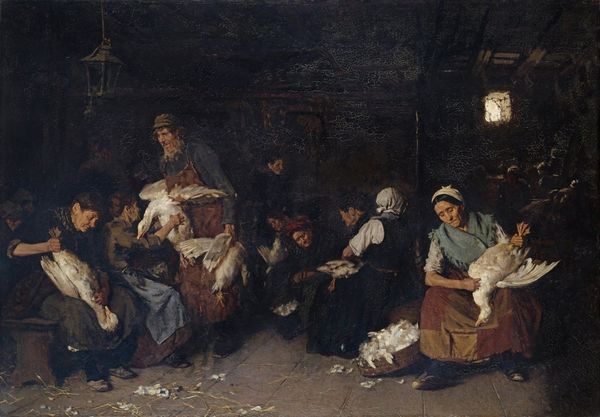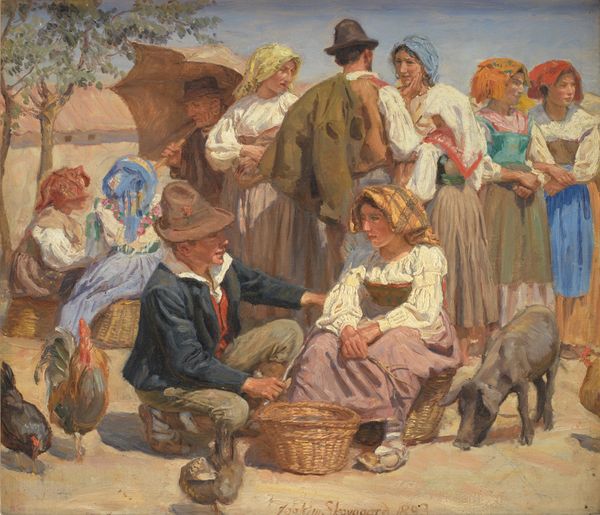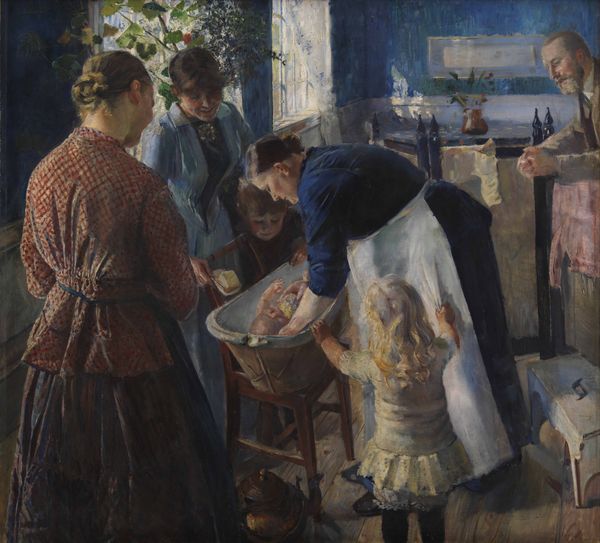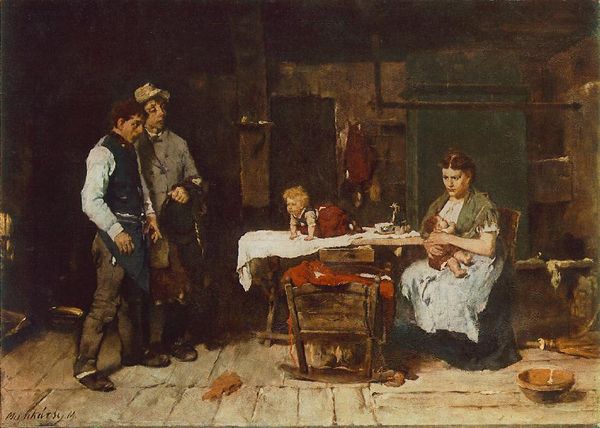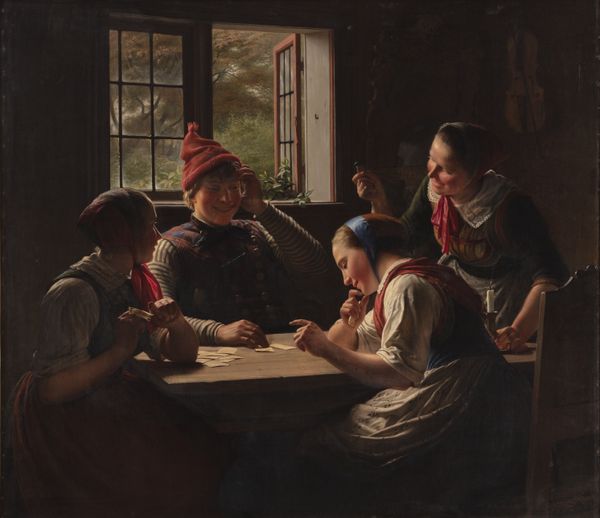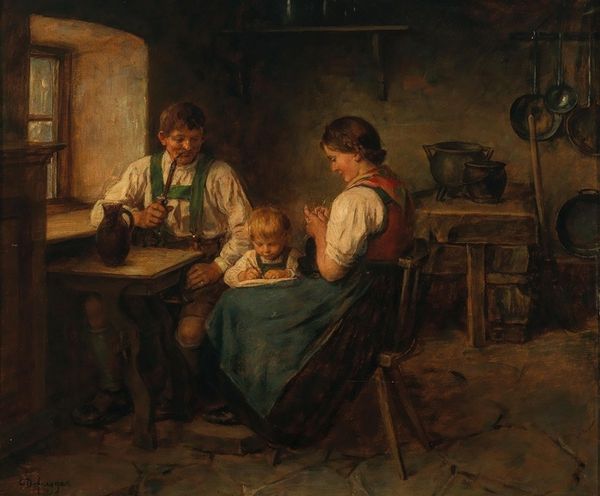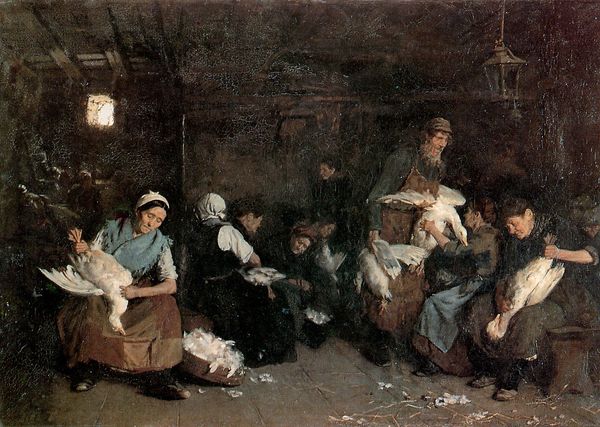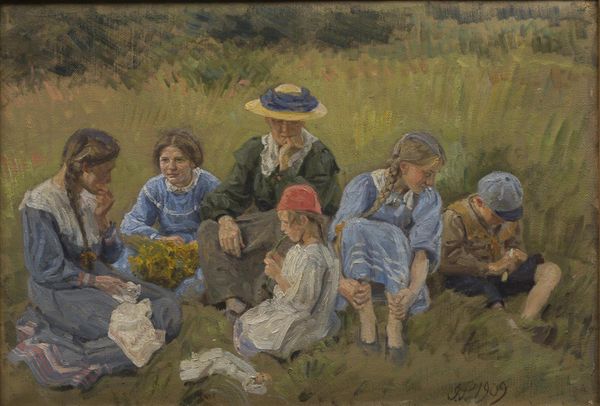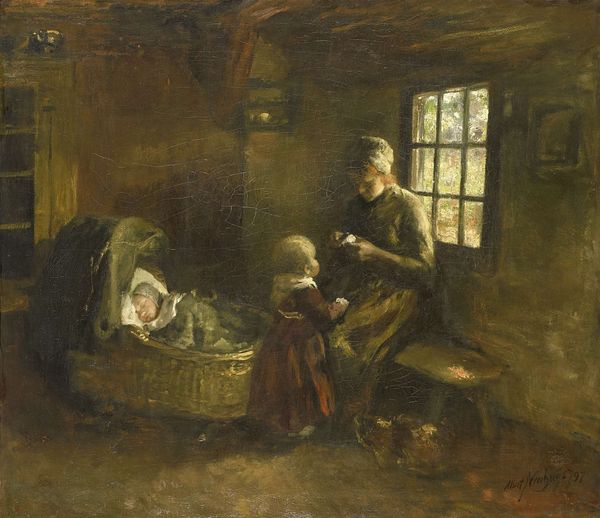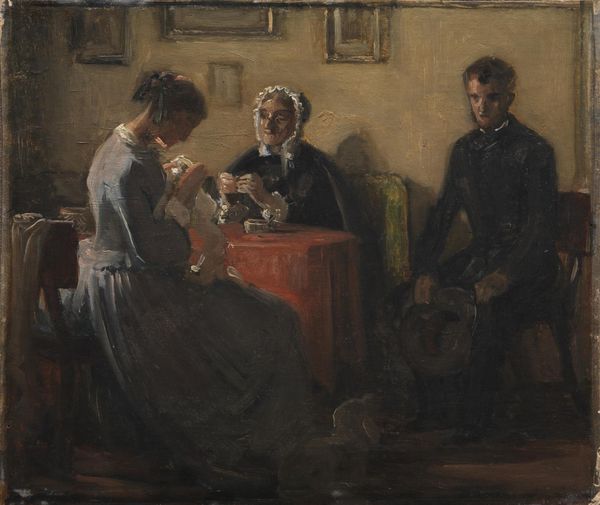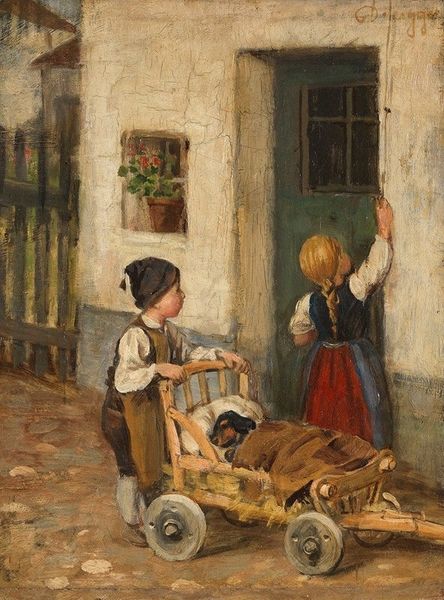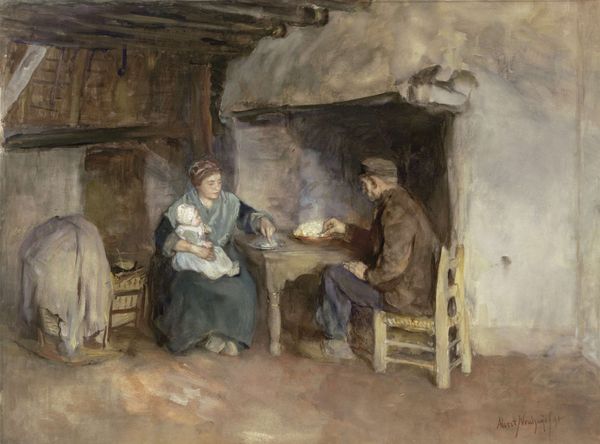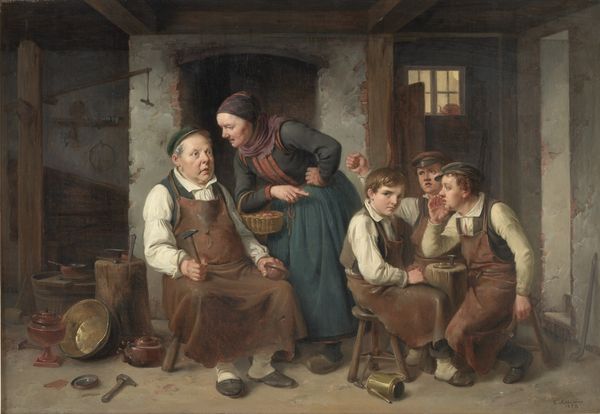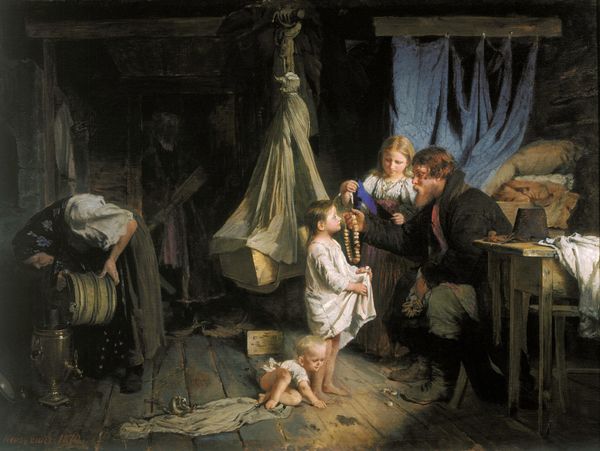
painting, oil-paint, canvas, impasto
#
painting
#
oil-paint
#
oil painting
#
canvas
#
impasto
#
underpainting
#
painting painterly
#
portrait drawing
#
genre-painting
#
northern-renaissance
#
portrait art
#
realism
Dimensions: 55 cm (height) x 67 cm (width) (Netto), 83.2 cm (height) x 72 cm (width) x 5.8 cm (depth) (Brutto)
Editor: This is Anna Ancher’s “Plucking the Geese,” painted in 1904. It’s an oil on canvas and gives such a grounded sense of everyday life. What strikes me is the repetitive gesture across the canvas - what do you see in how Ancher uses this rhythm to organize the composition? Curator: Formally, it’s quite intriguing. The horizontal arrangement of the figures creates a frieze-like effect, emphasizing the rhythmic, almost ritualistic action of plucking. Note the strategic use of light – it falls predominantly on the geese and hands, directing our gaze to the labor itself, which becomes the focal point. Consider how the textures are built using visible brushstrokes and layers of paint, giving the piece a palpable materiality. Editor: I see what you mean. The repetition is definitely key to the rhythm and movement. So, are you suggesting the visual qualities create a specific understanding of this common work? Curator: Precisely. The emphasis on line, texture, and composition over realistic details shifts the focus from merely representing a scene to conveying a deeper, almost choreographic representation of labor. The restricted palette reinforces this, creating a cohesive visual experience rather than a stark documentary depiction. Ask yourself how the painting uses formal elements to reveal something profound about everyday life and the communal act of labor. Editor: It’s fascinating how closely observing the formal elements transforms the act of plucking geese from the mundane to something almost stately. I hadn’t considered the choreography inherent in that scene until now. Curator: Indeed. Ancher prompts us to view the ordinary with renewed attention, highlighting the beauty and quiet dignity of daily life through the thoughtful manipulation of visual forms. Editor: That's given me a lot to think about. I will now be observing paintings very differently.
Comments
No comments
Be the first to comment and join the conversation on the ultimate creative platform.
